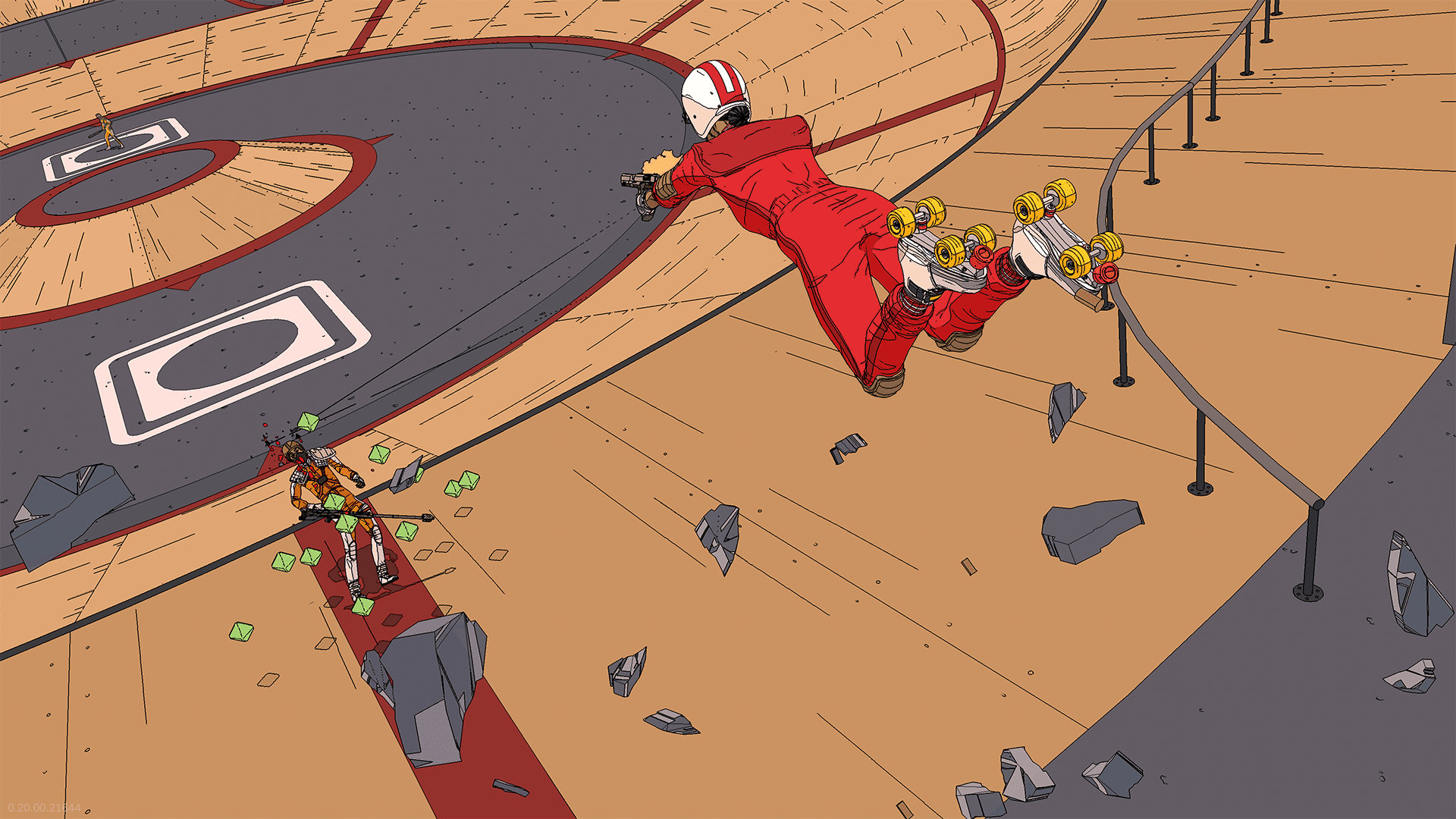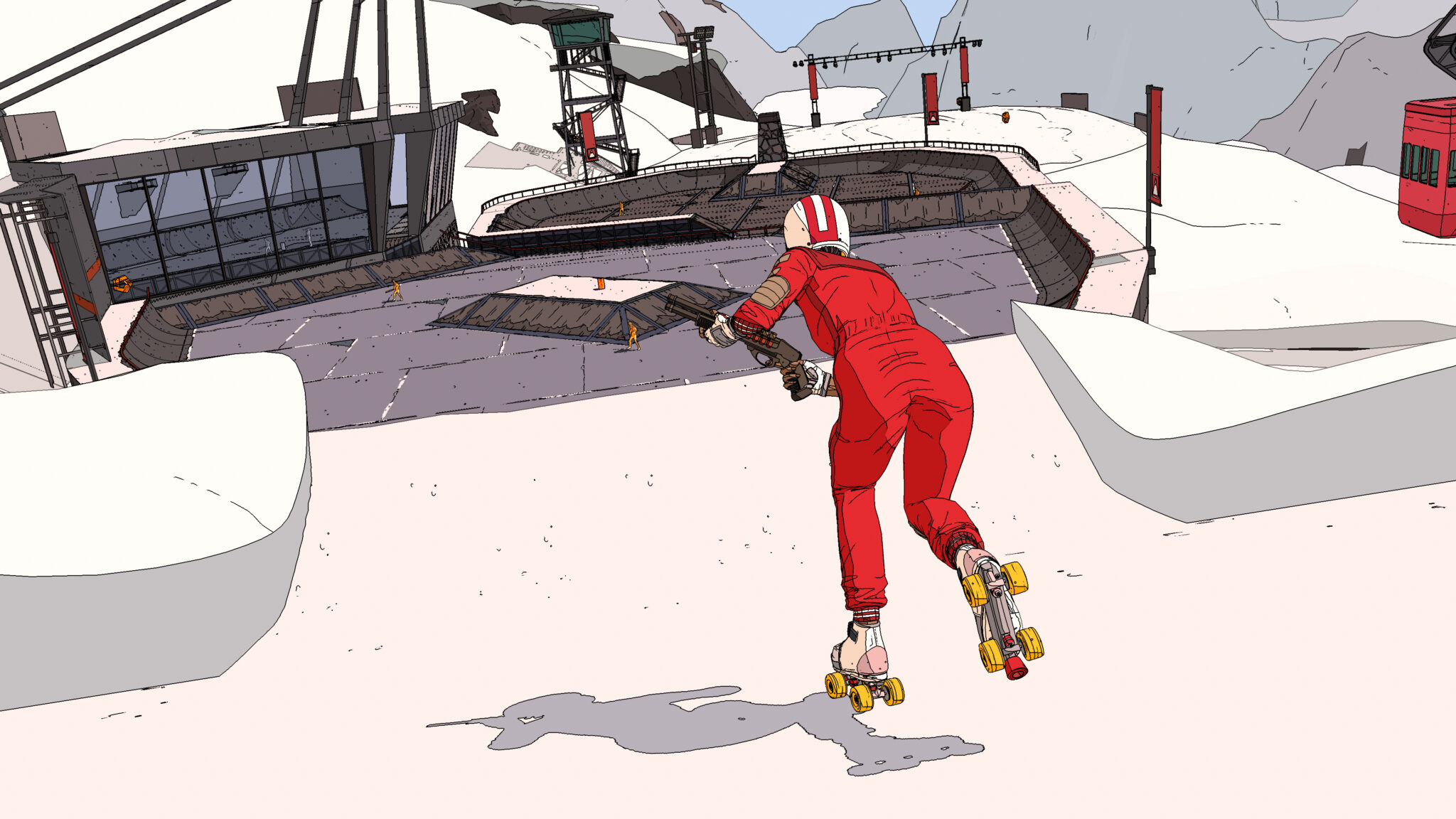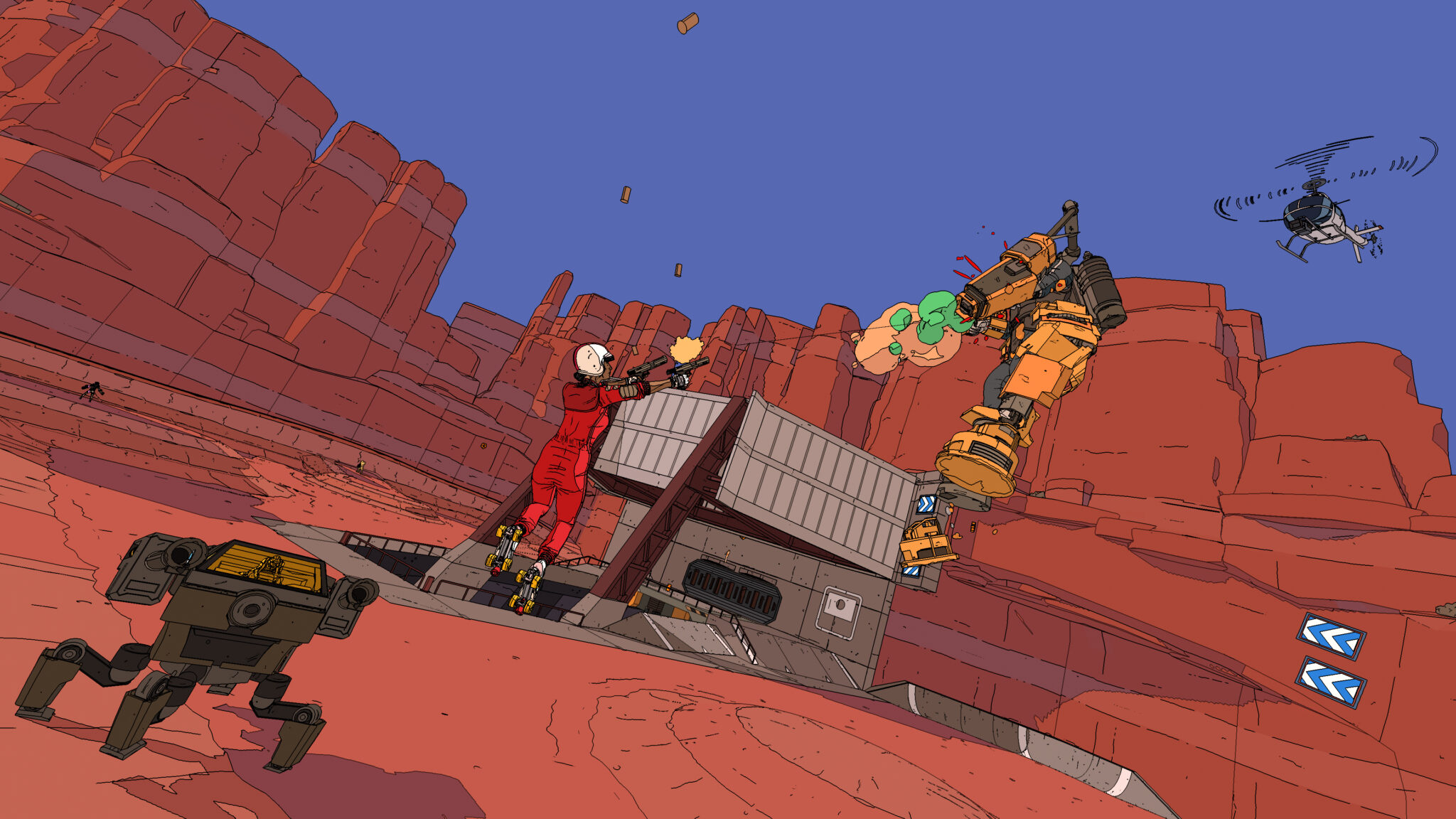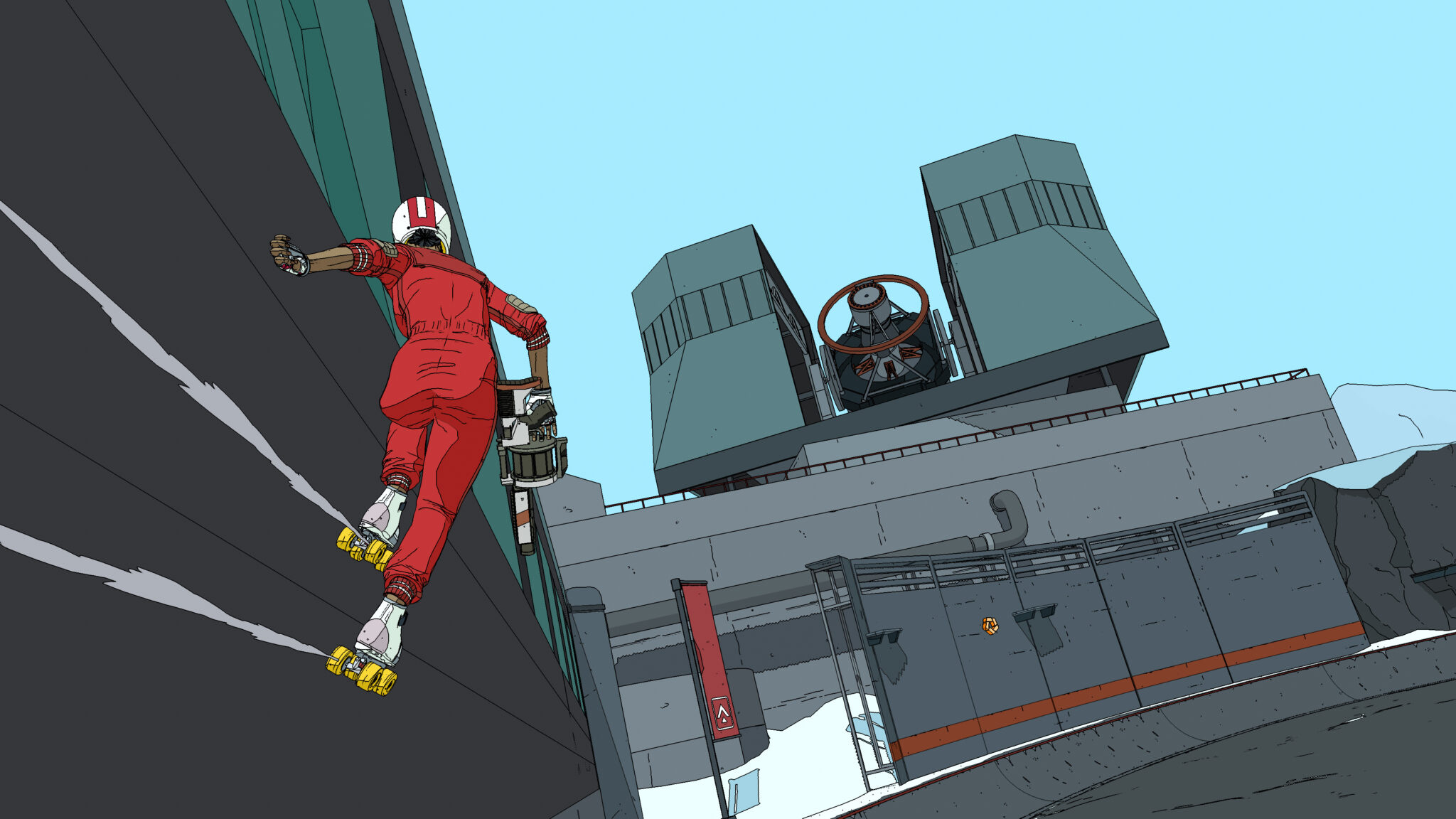
Rollerdrome review – A bleak future for bloodsports
Rollerdrome is this year’s second extreme sports title from Roll7 and Private Division. The first, OlliOlli World, is a chill, pastel skateboarding game where you’re aiming to become the next divine vessel of the world of shred. On the other hand, Rollerdrome is something entirely different. Instead of chill vibes and fun customization, this game is about being the most stylish and effective killer you can be while on roller skates.
Kara Hassan is the newcomer in the 2030 Rollerdrome Championship series. In classic sports storytelling, she has both an idol that she’s chasing, and a rival who’s looking to keep her on her toes. These two serve as Kara’s main external motivators throughout the game. Little do any of them know that in the background, the leadership of the league has changed, and the new focus is to make the world’s most-watched bloodsport even more dangerous.

This game is all about shooting to kill and looking good while doing it as you zoom around an arena on roller skates. Participants are tasked with killing extremely dangerous House Players who populate the arena in waves in order to advance. Alongside this goal, players are awarded points based on how many tricks and combos they’re able to pull off, and how quickly they can dispose of all the House Players. Similar to character action games like Bayonetta or Devil May Cry, each arena performance is graded on a scale of A to D based on the points scored.
In order to achieve her goal and advance to the top of the 2030 Championship, Kara has to make it through four stages of competition, each with four separate arenas to defeat. This is a challenging task on its own, but things are made even more difficult by the fact that the sport’s management is hellbent on wringing as much blood out of the event as possible. Each arena has its own unique challenges that are key to unlocking the later stages of competition. The farther you go in the Championships, the more challenges you’ll have to complete to advance (unless you turn this feature off in the game’s expansive difficulty settings). These extra goals include collecting all of the two types of tokens on the field, killing enemies in certain ways or with certain weapons, using certain abilities in your kills, doing specific tricks like wall rides or grinds, and more.

Like the OlliOlli series, Rollerdrome is extremely focused on physics and entering a so-called “flow state,” where players become in sync with the movement of the game to advance almost without thinking. When it comes to controlling Kara, that means allowing your mind to enter a zone where you’re able to easily and flawlessly execute the jumps, spins, holds, and flips expected of professionals in this sport, all while also shooting people that are firing anything from bullets to missiles at you.
When you’re able to actually achieve that state of zen, the game is really, really cool. There’s nothing like speeding off a ramp, doing a sick spin and freezing time in mid-air to shoot an opponent into oblivion. Unfortunately, the game’s physics and momentum systems can make this difficult at times. It can often feel like there’s just the slightest lag between your input and Kara’s response, which is a rough in a game where any delay is deadly. The camera is also a bit trying to manage; by default, it’s set to always center behind Kara, but you can turn this off in the expansive settings. I played with both options, but ultimately couldn’t really settle on what I preferred. Keeping the camera behind felt just a bit too restrictive, but untoggling it felt like too much freedom.

The movement in this game also, unfortunately, gave me motion sickness. This is something I’ve gotten more sensitive to recently, and likely won’t impact many players, but for those who do deal with this issue, Rollerdrome is a bit of a toughie. That said, I tried the game on both PC and PlayStation 5, and I was more comfortable playing on console. There are options to open up the field of view and turn off camera shake, but if motion sickness while gaming is an issue for you, these may not be enough.
While this setup does have the makings of any good athletic narrative, I did find myself wishing that it felt more like Kara had a team behind her. Despite the dozens of House Players you blast your way through, and brief interactions with both your idol and your rival, Rollerdrome feels empty. People who are successful in their dreams usually have a support system behind them, whether they’re athletes, singers, celebrities, or even retail workers. OlliOlli World is all about this; you may be the “chosen one,” but there’s a crew of folks helping you navigate Radlandia and build up your skills. Kara doesn’t really have that, and it makes this world of dystopian corporate management feel even more bleak in a way that doesn’t seem intentional.
This obviously isn’t meant to be a feel-good sports story, but even those wrought with struggle and exploitation still feature those who help the athlete along the way. Without that dimension, Rollerdrome’s narrative fell a bit flat for me. Combined with its cool but somewhat disorienting physics mechanics, my time competing in the 2030 Rollerdrome Championships wasn’t exactly the stylish, bullet-raining bliss I had hoped for. But the game is still interesting, challenging, and very unique, which definitely makes this competition one worth rolling through.
Score: 3.5/5
Copies of Rollerdrome for PC and PS5 were provided to Gayming Magazine by the publisher.






